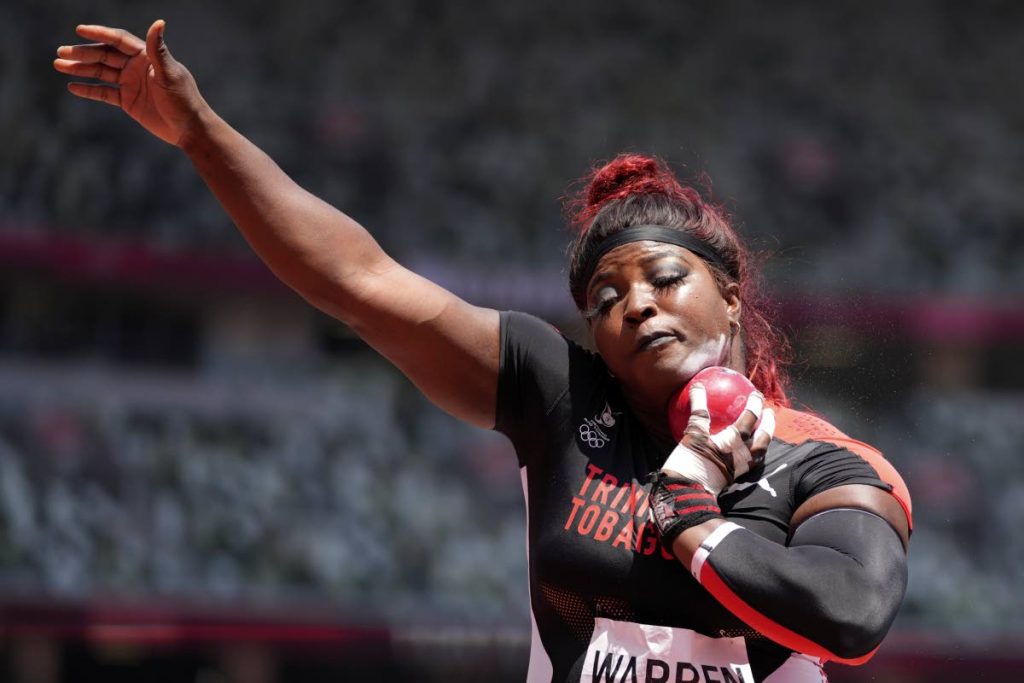Sport minister: Some Olympians didn't request funding

MINISTER OF Sport Shamfa Cudjoe on Tuesday said the Elite Athlete Assistance Programme (EAAP) remains in place to assist national athletes, but some Olympians did not apply for it.
TT ended the Tokyo Games without a medal for the first time since the 1992 Games in Barcelona.
In a telephone interview with Newsday, Cudjoe said she has noted the cries of some athletes for funding.
However, Cudjoe said the programme is fully functional and played an integral role in helping several of TT’s Olympians.
She was unable to divulge an exact figure of EAAP disbursements for 2021 but promised to provide the figure.
According to the ministry’s website, the EAAP is designed for, “Athletes who are world-ranked in individual sports.
“Those sports included in Olympic events and programmes and athletes who medal at Olympic Games, World Championships, Commonwealth Games, Pan American Games and Central American and Caribbean Games.”
The minister said prior to the Tokyo Games, multiple elite athletes received their respective disbursements in a timely manner, because they applied on time.
Athletes or national sporting organisations (NSOs) were required to submit their EAAP documentation two months before their respective Olympic event to ensure it was properly reviewed and processed by the Ministry of Finance.
Cudjoe said, “Athletes who applied for funding within time, got funding. I think we still had two or three athletes who applied late. Some of them were waiting for (Olympic) qualification first to apply, while some applied before.
“If you’re not an elite athlete and you apply for grant funding, you get funding. We don’t deny people funding.
"EAAP is not just for Olympics, we have to remember before the Games there were qualifying events over the years, and money was disbursed there as well.”
The minister said she could only speak about the efficiency of the programme from when she assumed the portfolio on April 9, 2018.
Two months prior, under former sports minister Darryl Smith, three-time Olympic medallist Richard Thompson, who was recovering from an injury, expressed displeasure with his inability to access elite funding.
Cudjoe said there have been some instances where athletes complain about lack of funding but did not apply for elite assistance.
She drew reference to TT’s Olympic women’s shot put finalist Portious Warren, who posted on Instagram that she had to “come out of pocket for all my meets.” The Olympic debutant, who finished 11th, called for “the support I need to make sure that I can dedicate all my time to training and getting my body to optimal performance level.”
Cudjoe said, “There are some people who have never applied. For instance Portious, she is reaching out on social media saying she has not been funded, but she has never applied. Once you have applied, meet the criteria of an elite athlete, you get funding.”
The minister also said that one of TT’s 4x100-metre women's Olympic sprinters, who applied for elite funding but did not meet the criteria, was directed to apply for regular grant funding and was successful.
In April, the sports ministry disbursed $450,000 to three athletes – Jereem Richards (200m, 400m), Dylan Carter (swimming) and Nigel Paul (boxing) under the EAAP. This was just one of the disbursements made by Cudjoe during her tenure as minister.
“Since the beginning of the fiscal year, I instructed the sport division to reach out to these athletes and ensure that we are doing what we’re supposed to in relation to funding.
“Those who applied, for instance the Dylan Carter, Andwuelle Wright and so on, they received their funding.”
In March, approximately one month before the EAAP submission deadline, Cudjoe said her ministry recognised that some athletes still had not applied. She said the ministry then posted on its social media platforms information on how to apply.
She said the ministry also holds athlete welfare and development workshops teaching athletes about how to access funding and also other information to develop their careers. Another segment of this workshop takes place later this month.
The minister also called on community groups to apply to fund their programmes and athletes. She said there is a lack of requests from community groups nationwide.
“Long-term athlete development programmes are supposed to be a part of all national governing bodies’ scope of works and their programming.
“We, as government and the ministry, are always open to assisting, responding to the applications and providing that necessary funding,” she said.


Comments
"Sport minister: Some Olympians didn’t request funding"